Personal bankers serve as trusted advisors to their clients. They help them manage their money, plan for the future, and meet their financial goals. Fortunately, personal bankers can come from all sorts of backgrounds, so if you have a non-traditional resume or cannot identify an opportunity in your local market, this article can assist you in creating a winning resume. A skilled personal banker resume is essential to land that first interview. Most employers will not even look at your CV unless it’s hooked up to a summary. There are many different types of roles for personal bankers. Some work for big banks and charge high fees; others work independently and lower prices; others work on contracts with specific banks or credit unions. The role may also involve relationship management, portfolio management, asset allocation modeling, risk management – or some combination of these elements and other unique responsibilities relevant to that particular organization and scope of the individual’s job function.
Personal Banker Resume Example

Download This Personal Banker Resume as PDF
Personal Banking Officer Resume Example
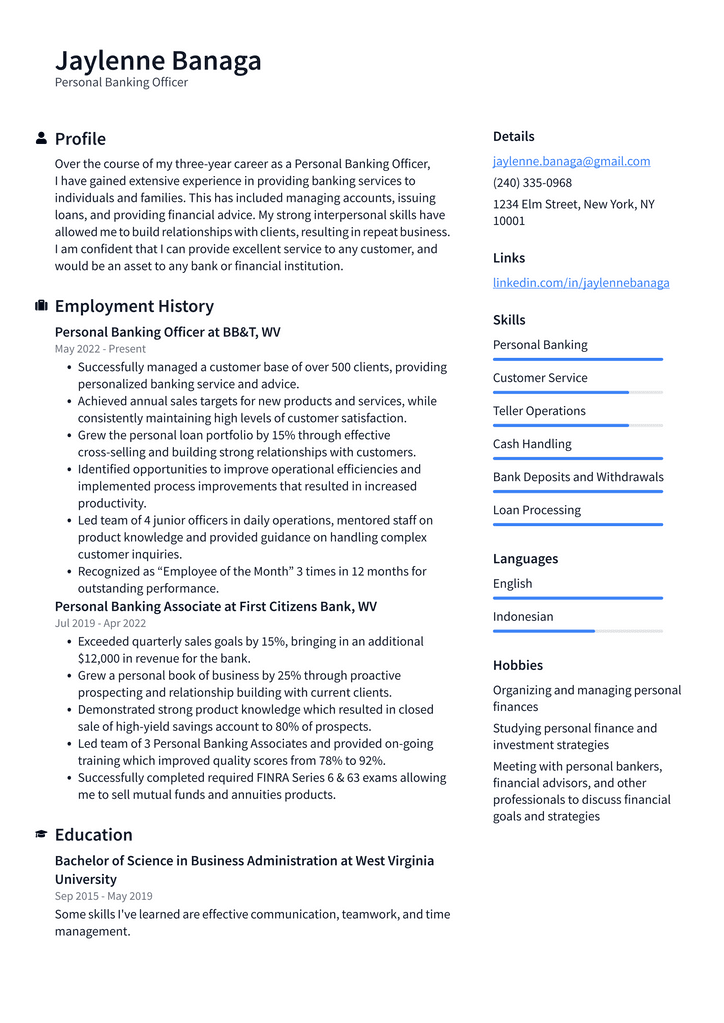
Download This Personal Banking Officer Resume as PDF
Personal Banking Associate Resume Example
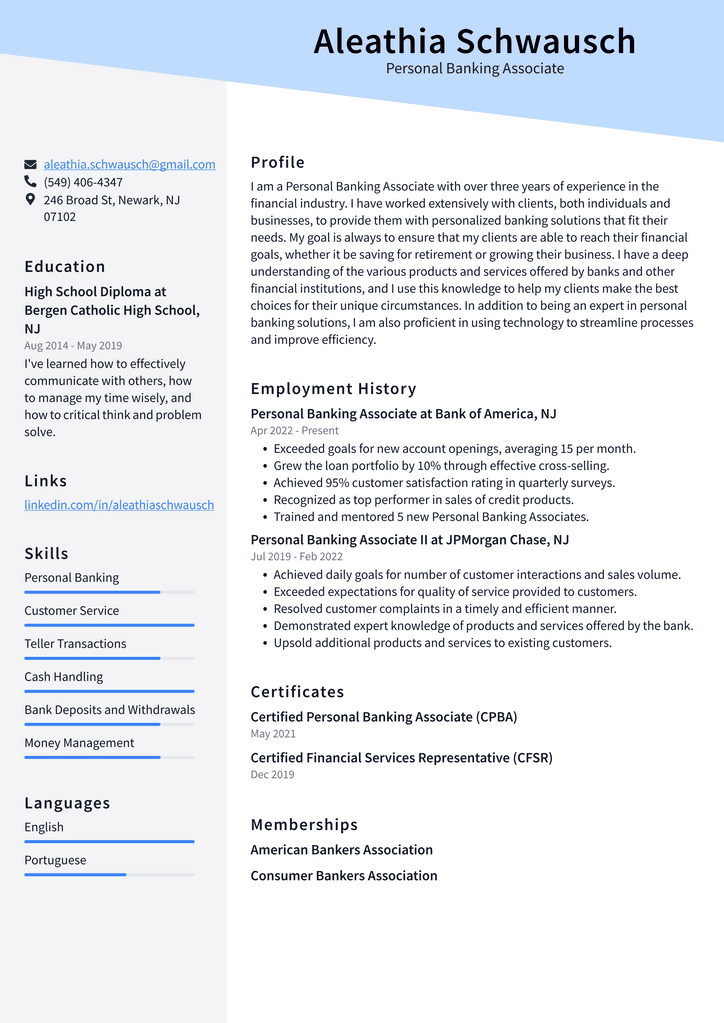
Download This Personal Banking Associate Resume as PDF
Personal Banking Representative Resume Example
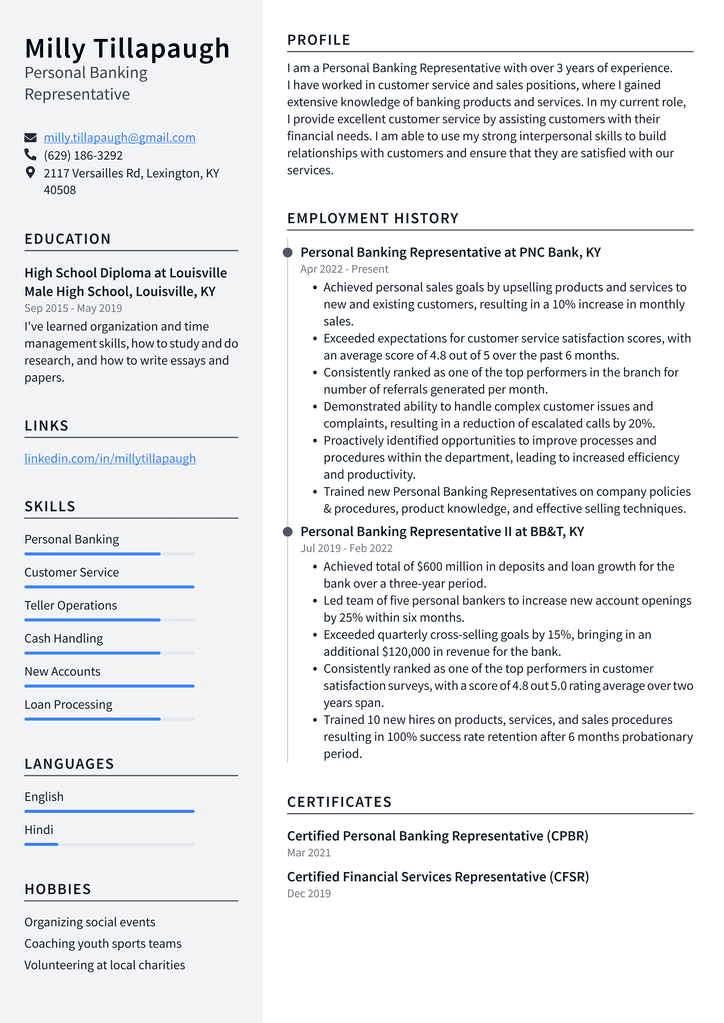
Download This Personal Banking Representative Resume as PDF
Personal Banking Advisor Resume Example
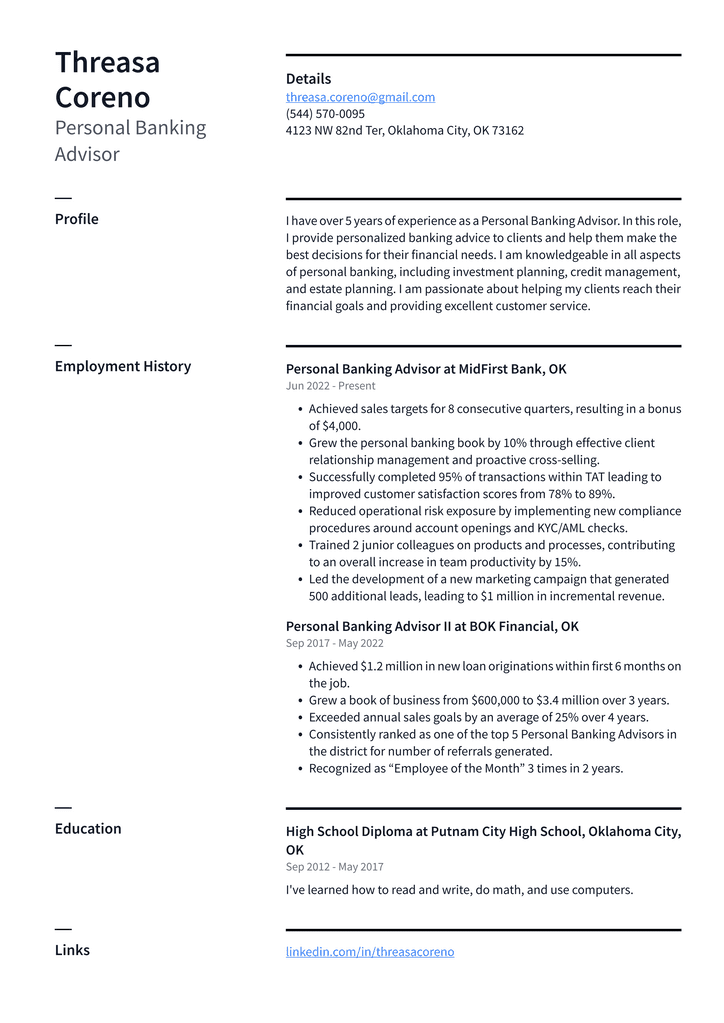
Download This Personal Banking Advisor Resume as PDF
Personal Banking Specialist Resume Example
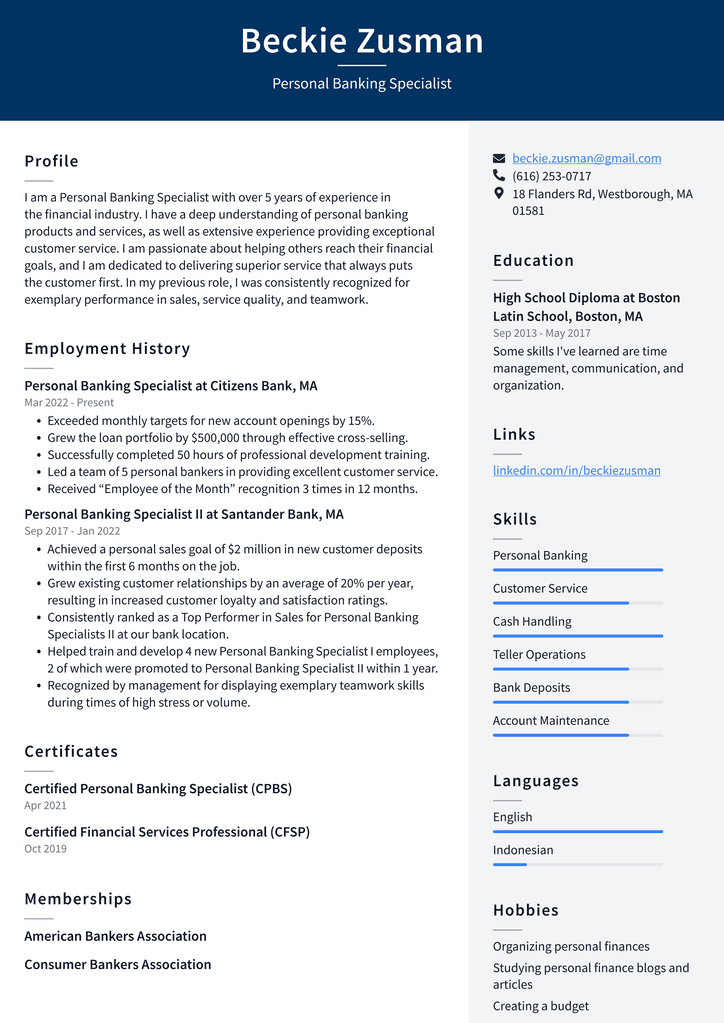
Download This Personal Banking Specialist Resume as PDF
Personal Banking Consultant Resume Example
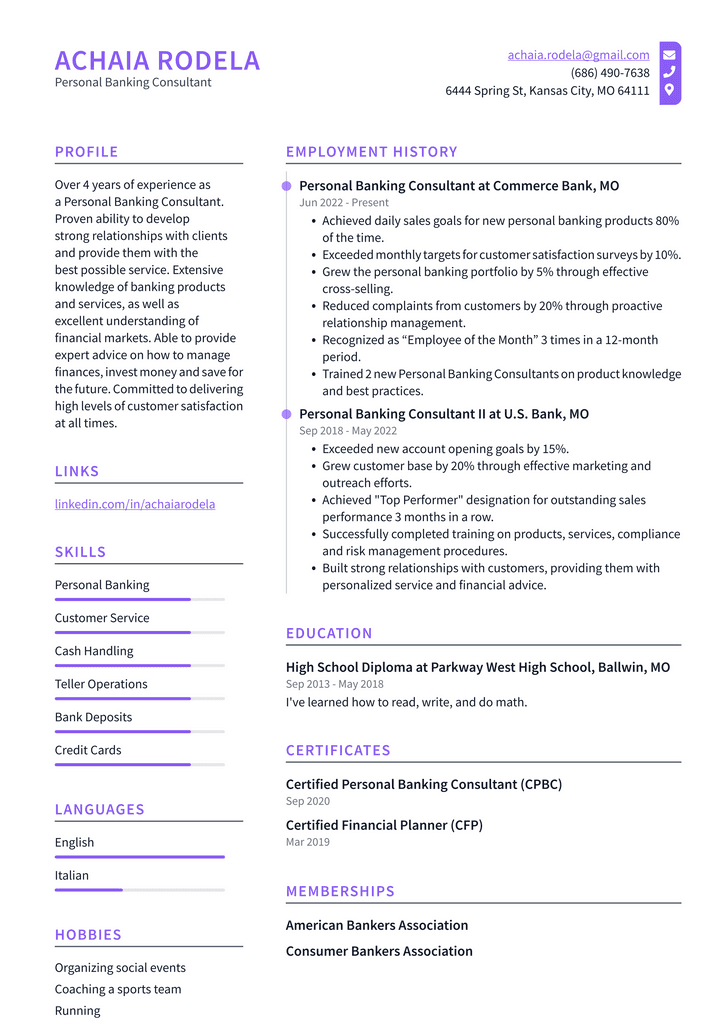
Download This Personal Banking Consultant Resume as PDF
Create Your Resume with a Professional Resume Writer
If you’re struggling to put your best foot forward in your resume, consider hiring a professional writer to help you create an impressive resume. The resume writing process should start with a one-on-one consultation with the Resume Writers’ team, where they will learn about your job history, education, and other details that go into making up your work experience. Then, the writer will create a draft resume based on your input and make sure it’s personalized to your industry and career goals. You can expect to pay anywhere from $300 to $600 for this service, depending on how long your resume is and how much research the writer needs to do to create an effective document.
What to Include in Your Banker Resume
This section shows you what information you should include in your resume. In a nutshell, you need to list your work history, education, and skills. Depending on the role, you may also need to list your relevant job functions. First, education: In this section, you should list the academic degrees and credentials you’ve earned. Include the Academic Institution, Location, Degree, Major, and Date Obtained. If you have not yet received a degree, list your expected graduation date—work history. Next, list the companies you’ve worked for, including a description of your role. You may want to include a brief description of the work you did. If you can, try to quantify your contributions, such as the number of customers you served or the amount of money you helped make. Next, skills: You need to list your skills, focusing on those relevant to your target job.
Things to Remember When Writing Your Resume
Keep it concise – make sure every word counts. Resume length varies, with different industries expecting different amounts of content. As a rule of thumb, you should aim for a 2-3 pages long resume. Write in the first person. Avoid using the “we” or “they” when discussing your work experience. Instead, write in the first person, focusing on your accomplishments. Keep the formatting clean. You can create a resume using Microsoft Word or another standard word processing program. Use bold and italics appropriately and ensure the design stays consistent throughout the document.
Tips for nailing your resume’s first sentence
The first sentence of your resume is one of the essential parts of your document. It needs to grab potential employers’ attention and clearly state your skills. But knowing what to write can be tricky. Here are some tips that can help you write an attention-grabbing first sentence. First, keep it short – The first sentence should be quick, to the point, and long enough to convey your message. Aim to keep the sentence between eight and fourteen words long, which is the average length of all penalties. Focus on your skills – Instead of trying to write an intriguing first sentence, focus on listing your skills. Your first sentence should tell the employer what you can do for them.
Tips for an effective job objective statement
A job objective statement is a short paragraph about what you hope to do with your career, typically found at the top of a resume. It’s a chance to show off your personality, flare, and skill set. A job objective statement can help employers understand your goals and what you hope to contribute to the company and industry. You can also use the information to respond to potential employers’ concerns, such as salary expectations or employment gaps. But how do you write a great statement? Here are some tips to help you create a compelling objective. First, write an attention-grabbing message – The first rule of thumb when writing a job objective is to focus on grabbing the reader’s attention. Consider what the readers want in a candidate and what you can offer to meet those needs. Go for clarity – An excellent job objective will be clear, concise, and direct. It should tell employers what you want to do and why you want to do it.
Concluding Words
A great resume will help you land an interview and, hopefully, a job. While the details of what goes into each part of your resume will vary a bit depending on the type of job you’re looking for, the overall goal is to show hiring managers that you have the skills they need and deserve a chance at the position. If you’re struggling with your resume, remember that you can always seek help from a professional resume writer. And don’t worry if you don’t have tons of experience: everyone has to start somewhere, and many companies are willing to hire people with little to no experience. All you need to do is put your best foot forward and give hiring managers a reason to want to meet you. With the help of this article, you should be able to craft a great resume that gets you the job you want.